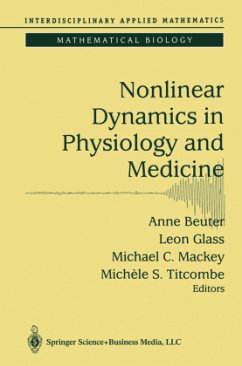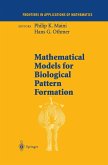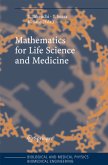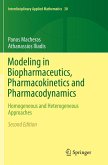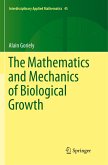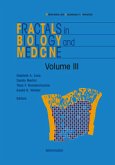Introduces concepts from nonlinear dynamics using an almost exclusively biological setting for motivation, and includes examples of how these concepts are used in experimental investigations of biological and physiological systems. One novel feature of the book is the inclusion of classroom-tested computer exercises. This book will appeal to students and researchers working in the natural and physical sciences wanting to learn about physiological systems from a mathematical perspective.
Je tiens impossible de connaître les parties sans connaître le tout, non plus que de connaître le tout sans connaître particulierement les parties -Pascal The eterna[ mystery of the world is its comprehensibility -Einstein This book deals with the application of mathematical tools to the study of physiological systems. It is directed toward an audience of physiologists, physicians, physicists, kinesiologists, psychologists, engineers, mathemati cians, and others interested in finding out more about the complexities and subtleties of rhythmic physiological processes from a theoretical per spective. We have attempted to give a broad view of the underlying notions behind the dynamics of physiological rhythms, sometimes from a theoretical perspective and sometimes from the perspective of the experimentalist. This book can be used in a variety of ways, ranging from a more tra ditional approach such as a textbook in a biomathematics course (at either the advanced undergraduate or graduatelevel) to a research re source in which someone interested in a particular problem might look at the corresponding discussion here to guide their own thinking. We hope that researchers at all levels will find inspiration from the way we have dealt with particular research problems to tackle completely new areas of investigation, or even approach these in totally new ways.
Je tiens impossible de connaître les parties sans connaître le tout, non plus que de connaître le tout sans connaître particulierement les parties -Pascal The eterna[ mystery of the world is its comprehensibility -Einstein This book deals with the application of mathematical tools to the study of physiological systems. It is directed toward an audience of physiologists, physicians, physicists, kinesiologists, psychologists, engineers, mathemati cians, and others interested in finding out more about the complexities and subtleties of rhythmic physiological processes from a theoretical per spective. We have attempted to give a broad view of the underlying notions behind the dynamics of physiological rhythms, sometimes from a theoretical perspective and sometimes from the perspective of the experimentalist. This book can be used in a variety of ways, ranging from a more tra ditional approach such as a textbook in a biomathematics course (at either the advanced undergraduate or graduatelevel) to a research re source in which someone interested in a particular problem might look at the corresponding discussion here to guide their own thinking. We hope that researchers at all levels will find inspiration from the way we have dealt with particular research problems to tackle completely new areas of investigation, or even approach these in totally new ways.
From the reviews:
"As part of the Springer Interdisciplinary Applied Mathematics Series, this book joins a line of books that are leading the way in showing how mathematics can be usefully applied to biology and physiology." - Bulletin of the AMS, 2004
"This book is an excellent addition to the literature. Perhaps its greatest value is its appeal to a wide class of prospective readers who may range from the biologist (mathematician) who has a mild interest in mathematics (biology) to the researcher who works in one of the fields discussed. ... There is a large bibliography, and there are analytical and computer exercises at the end of each chapter." (Jane Cronin, Zentralblatt MATH, Vol. 1050, 2005)
"The book «Nonlinear Dynamics in Physiology and Medicine» is a multi-author effort. ... Each chapter is well grounded ... . The book's references list is thorough and valid ... . This book is aimed at all scientists studying physiological systems in general ... . It fits into curricula usually offered by bio-engineering departments and - happily more and more - also medical schools. ... a book of high standards and is to be recommended. It is a title worth possessing as a collection of valuable reference material ... ." (Prof. dr. sc. Vladimir Medved, IFMBE News, Vol. 69, November/December, 2004)
"Beuter, Glass, Mackey and Titcombe edit a book that provides an understanding of the theory and application of mathematical tools to the study of physiological systems. The book will be of interest to those involved in the modeling of such physiological systems. ... The material is well written, clear and concise. ... I liked the book. It makes an important contribution to the field ... . I recommend this book. It makes a worthwhile addition to a biological/medical science library." (Paul Johnson, New Zealand Mathematical Society Newsletter, Issue 91, 2004)
"As part of the Springer Interdisciplinary Applied Mathematics Series, this book joins a line of books that are leading the way in showing how mathematics can be usefully applied to biology and physiology." - Bulletin of the AMS, 2004
"This book is an excellent addition to the literature. Perhaps its greatest value is its appeal to a wide class of prospective readers who may range from the biologist (mathematician) who has a mild interest in mathematics (biology) to the researcher who works in one of the fields discussed. ... There is a large bibliography, and there are analytical and computer exercises at the end of each chapter." (Jane Cronin, Zentralblatt MATH, Vol. 1050, 2005)
"The book «Nonlinear Dynamics in Physiology and Medicine» is a multi-author effort. ... Each chapter is well grounded ... . The book's references list is thorough and valid ... . This book is aimed at all scientists studying physiological systems in general ... . It fits into curricula usually offered by bio-engineering departments and - happily more and more - also medical schools. ... a book of high standards and is to be recommended. It is a title worth possessing as a collection of valuable reference material ... ." (Prof. dr. sc. Vladimir Medved, IFMBE News, Vol. 69, November/December, 2004)
"Beuter, Glass, Mackey and Titcombe edit a book that provides an understanding of the theory and application of mathematical tools to the study of physiological systems. The book will be of interest to those involved in the modeling of such physiological systems. ... The material is well written, clear and concise. ... I liked the book. It makes an important contribution to the field ... . I recommend this book. It makes a worthwhile addition to a biological/medical science library." (Paul Johnson, New Zealand Mathematical Society Newsletter, Issue 91, 2004)

